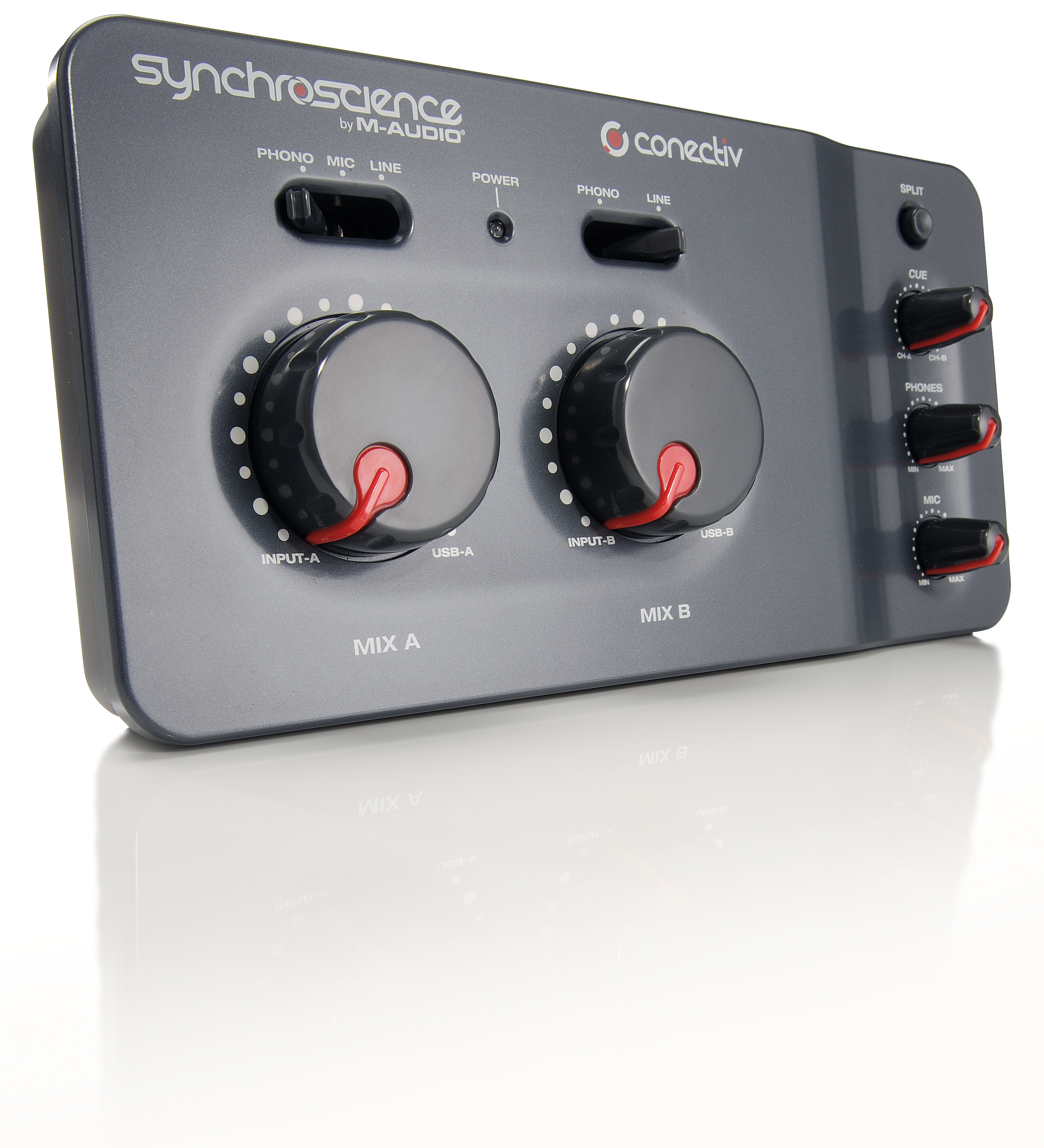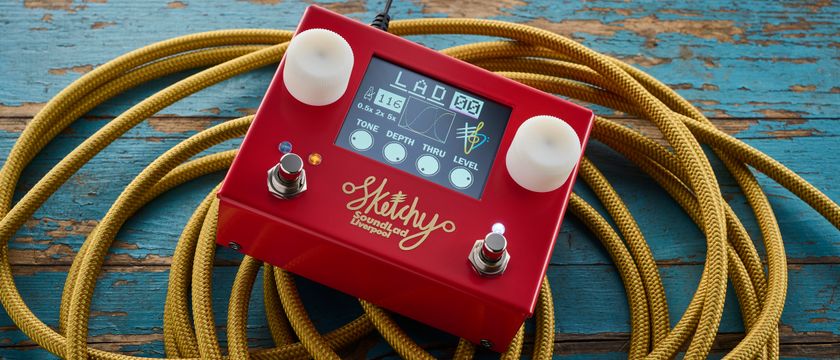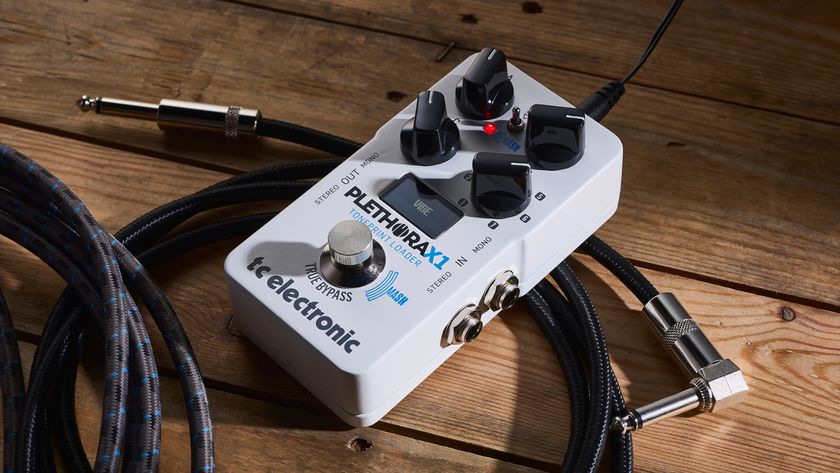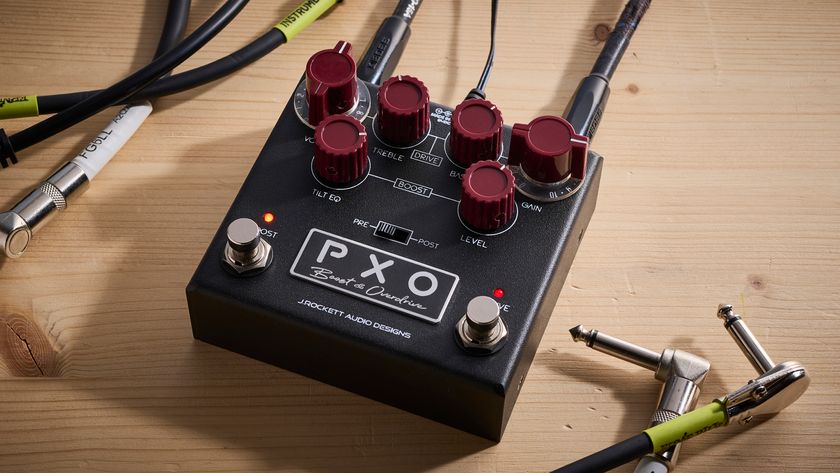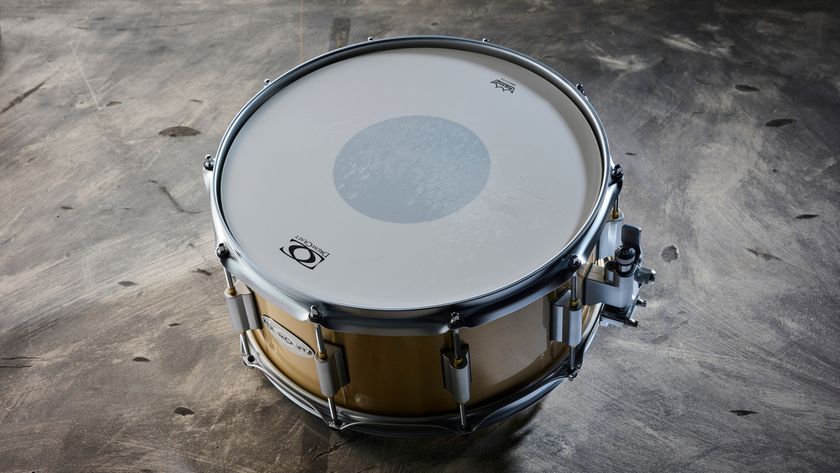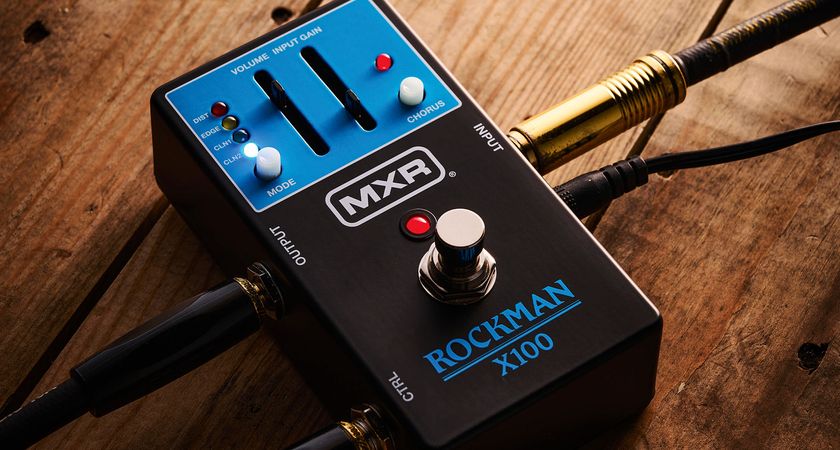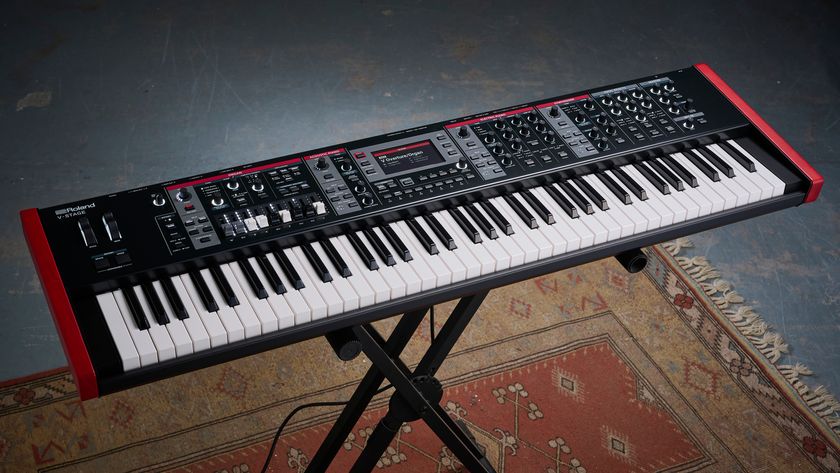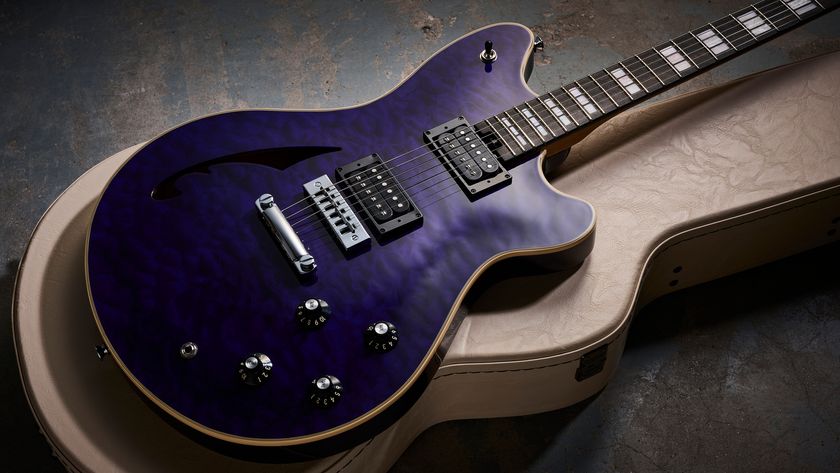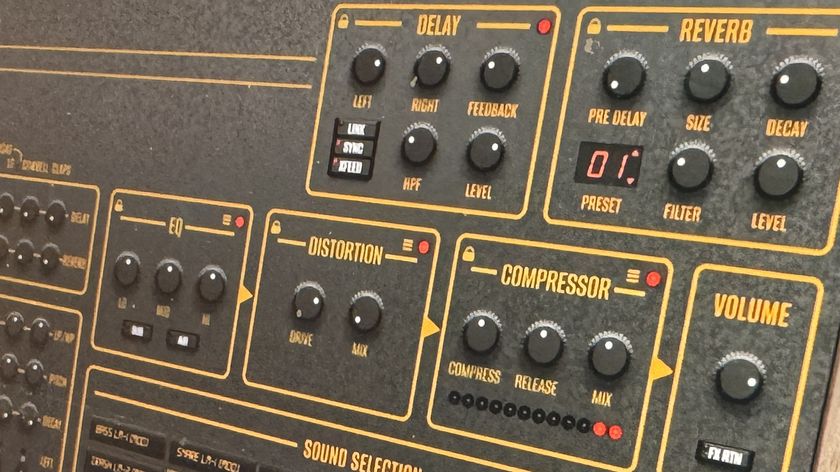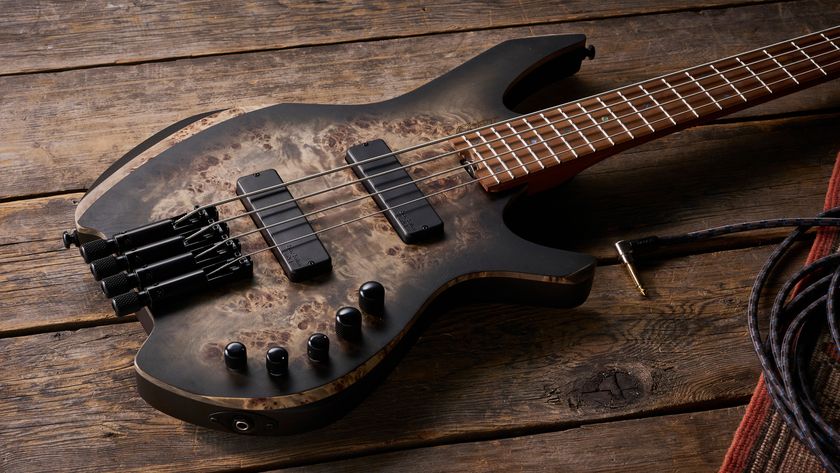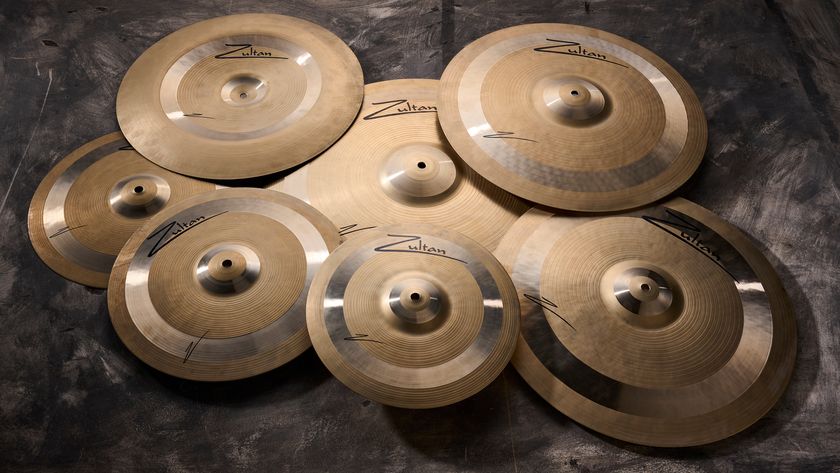MusicRadar Verdict
Torq Conectiv isn´t quite as good as it promised to be, but it´s just versatile enough to be interesting. Don´t buy it without considering the alternatives, though.
Pros
- +
USB-powered. Much cheaper than comparable alternatives. Versatile audio interface. You can use VST effects.
Cons
- -
Cluttered GUI. Limited number of channels. Not the best time-code control available.
MusicRadar's got your back




The Torq Connectiv comprises three parts: a two-channel virtual DJing application, a 4-in/4-out USB-powered audio interface, and a set of two time-coded vinyl records and two CDs that can be used with the software à la Final Scratch.
Installation is easy (this is an M-Audio product, after all), but one look at the Torq software reveals a very cluttered interface. You can customise it slightly, but not with the same success as you can Ableton's Live and NI's Traktor. Speaking of Traktor, Torq's layout will at least be familiar to anybody who's used that application. All the standard features are here: tempo detection, internal or external mixing, cue points, vinyl or CDJ modes, waveform controls and looping.
Torq works with pretty much any type of audio file you throw at it (it even scans your iTunes library on launch) and the extras include a sampler, effects and the ability to address your plug-in effects folder. Beneath all of this is the obligatory browser window that helps you keep track of your tracks, and on the whole, it all works reasonably well.
A few flaws
Unfortunately, there are a few flaws. First of these is the aforementioned screen congestion, which gets even worse when you apply one of the fancy fascias on offer. Then there are the little details, like the fact that accidentally clicking the X in the top-right corner doesn't produce a reassuring 'This action will stop audio. Are you sure?'-style message -- it instantly exits the program. It should also be said that the track count is rather meagre -- two channels of audio really isn't a lot in this day and age. This does at least ensure seamless integration with the hardware interface, however, which is only designed to accommodate two stereo channels.
Speaking of the interface, known as Conectiv, it offers two sets of stereo ins and outs on DJ-friendly phono jacks (including turntable-level inputs). The inputs can be used either to channel audio into your machine (Conectiv shows up as an audio interface in any audio application) or to accept two channels of time-coded control data (more on this shortly). There's also a headphone jack with split cue facility that, rather irritatingly, isn't addressable as a third stereo pair; and finally, a mic input. The headphone feed, meanwhile, has a mix function so you can hear channel A or B, or a controlled mix of both.
Versatile
The most unusual feature on the front panel is a pair of knobs (one for each channel) that offer straight analogue blending between the audio interface outputs and the incoming signal. This has great potential for anybody who wants an interface to blend the audio signal from their PC and monitor an incoming signal directly (without it going in and out of the machine and creating unwanted latency). It makes Conectiv far more versatile than your standard DJ interface.
Of course, none of this would be worth a jot if the sound was no good, but fortunately, the quality is on a par with any of the other DJing products and just about passable for more general recording duties. The build quality is rugged enough, too, and the Conectiv is certainly small and light enough to fit into a laptop bag.
Now the final element of the package: the control discs. Each of these is time-coded with a signal that the Conectiv hardware transmits to the software, which then decodes it. The idea is that you can control the digital tracks in Torq almost exactly as you would vinyl or CDs. The system works pretty well, but unfortunately, it isn't quite as sharp as FinalScratch or Serato Scratch, so serious turntablists might be left disappointed. And if you aren't planning to do any serious scratching, you have to wonder whether it's worth bothering with the control discs at all.
Torq Conectiv isn't the DJing revolution that M-Audio's marketing department would have you believe. This isn't to say that it doesn't have its uses, though -- Ableton Live owners who want multiple ins/outs may consider it, as might anybody else who works in digital DJing. But even here, the system falls down where FinalScratch succeeds, as it won't let you address the headphone output as an extra stereo pair. What's more, the software isn't as good as NI's Traktor, and the vinyl/CD control doesn't match up to FinalScratch 2 or Serato Scratch. So, while Torq Conectiv is an interesting departure for M-Audio, it hasn't yet fulfilled its potential.
MusicRadar is the number one website for music-makers of all kinds, be they guitarists, drummers, keyboard players, DJs or producers...
- GEAR: We help musicians find the best gear with top-ranking gear round-ups and high-quality, authoritative reviews by a wide team of highly experienced experts.
- TIPS: We also provide tuition, from bite-sized tips to advanced work-outs and guidance from recognised musicians and stars.
- STARS: We talk to musicians and stars about their creative processes, and the nuts and bolts of their gear and technique. We give fans an insight into the craft of music-making that no other music website can.

“Instead of pairing a new booster inside this new pedal, think of it as changing lanes inside the pedal”: Mythos and That Pedal Show team up for the Argo Boost Deluxe – an octave fuzz with a switchable boost

“I didn’t even realise it had synthesizer on it for decades”: This deep dive into The Beatles' Here Comes The Sun reveals 4 Moog Modular parts that we’d never even noticed before

“I saw people in the audience holding up these banners: ‘SAMMY SUCKS!' 'WE WANT DAVE!’”: How Sammy Hagar and Van Halen won their war with David Lee Roth
